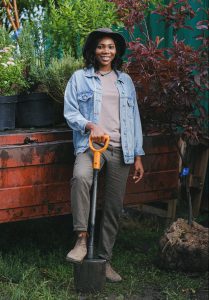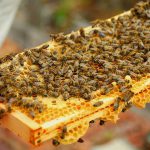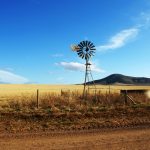
Press release
During this month (October), Farmsol celebrates its 6th anniversary of being at the forefront of supporting black farmers to become more sustainable commercial producers, which coincided with World Food Day celebrated last week on the 16th of October. The significance of World Food Day lies in the awareness it creates on the global food problem and the strengthening of solidarity in the fight against hunger, malnutrition, and poverty – something at the heart of what Farmsol does.
Over the past six years, FarmSol has paid over R100 million in profits to smallholder and emerging farmers participating in its programs, bringing about significant improvements in poverty alleviation, raising incomes, and improving food security. FarmSol supports thousands of smallholders and emerging farmers by providing them access to the market, innovative funding, extension services and mechanisation solutions.
Farmsol as an implementing partner of SAB (South African Breweries) emerging farmer support programme has provided production loans, access to markets, and mentorship to farmers in all 9 provinces covering about 53 000 hectares of maize, barley, and sunflower crops. These products are taken up by giant companies like South African Breweries and Siqalo Foods, through the Siqalo Grower Empowerment Programme. As a result of the two programs, smallholder farmers have direct access to the supply chains of these two major processing companies – thus having their products in the production of famous beer brands and household food brands such as Rama, Stork Margarine, and Rondo.

Zoleka Lisa, Vice President of Corporate Affairs for SAB, says the company is proud of these achievements and will continue to support local farmers. Lisa says the Farmsol programme forms an integral part of the company’s environmental, social, and governance (ESG) strategy which focuses on ensuring climate resilience, effective partnerships for water stewardship, and an inclusive economic recovery through entrepreneurship. “It’s imperative to us to have a sustainable company. Beer is reliant on a thriving agricultural sector and a healthy natural environment. Our operations and products are therefore intricately linked to nature which is why this is so crucial to us,” says Zoleka.
Aron Kole, Farmsol MD says the challenge in transformation is not the farmers, nor the market, but often a way of connecting these two with one another. FarmSol will continue to play this critical role as part of our contribution to alleviating hunger and poverty and building a stronger – better South Africa. “This is of extreme importance in a country with approximately 11% (6.5 million) of its population suffering from hunger and food insecurity and an unemployment rate of 34%,” says Kole.
Through innovative programmes, Farmsol is working towards a vision of achieving efficient and responsible agriculture to provide the country with food that is nutritious and accessible for everyone. “For agriculture to be sustainable, it must meet the needs of current and future generations as well as ensure profitability, environmental health, and social equity. Over time, sustainable agriculture can contribute to all four pillars of food security – availability, access, utilization, and stability,” concludes Kole.
Photos by Anna Shvets on Pexels.
Relevant Agribook pages include “Emerging farmer support” and “Finance for new farmers and SMMEs“.







